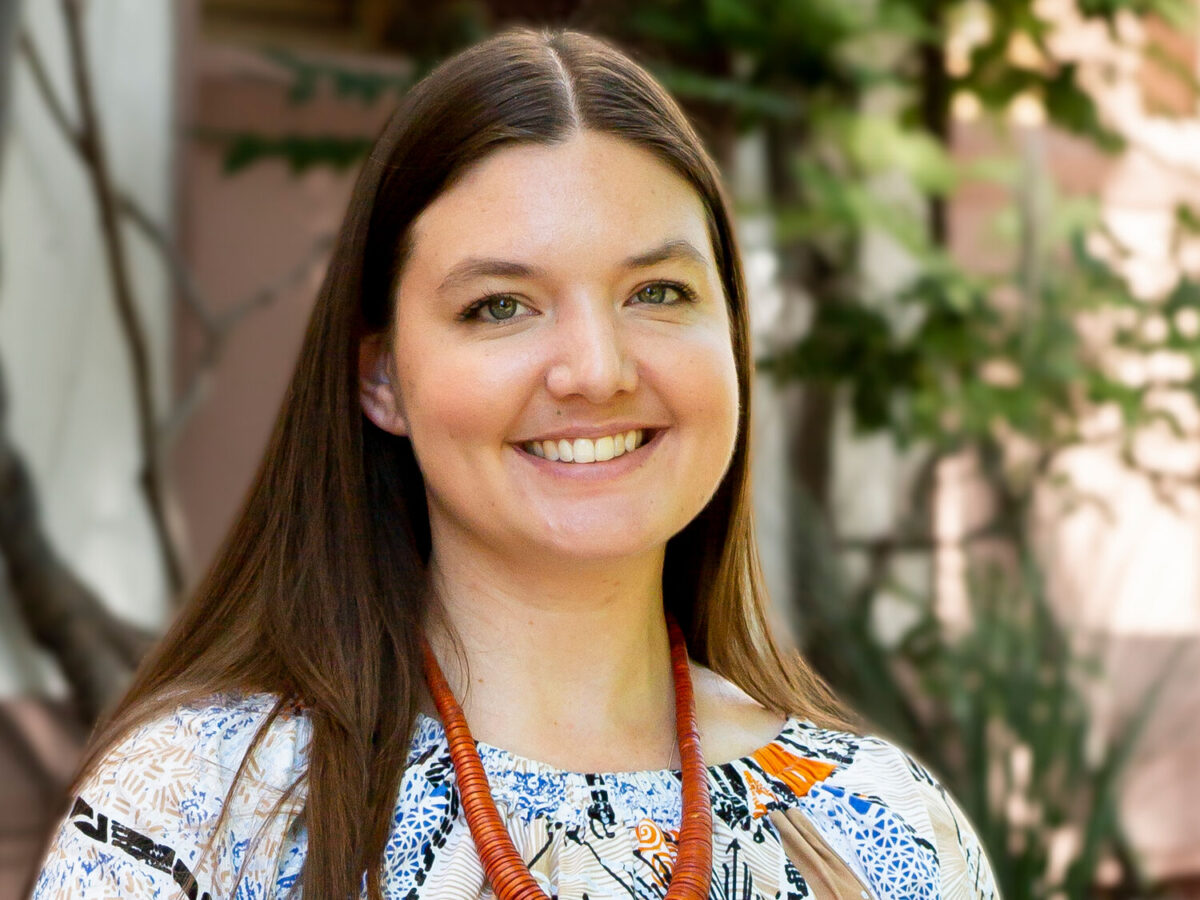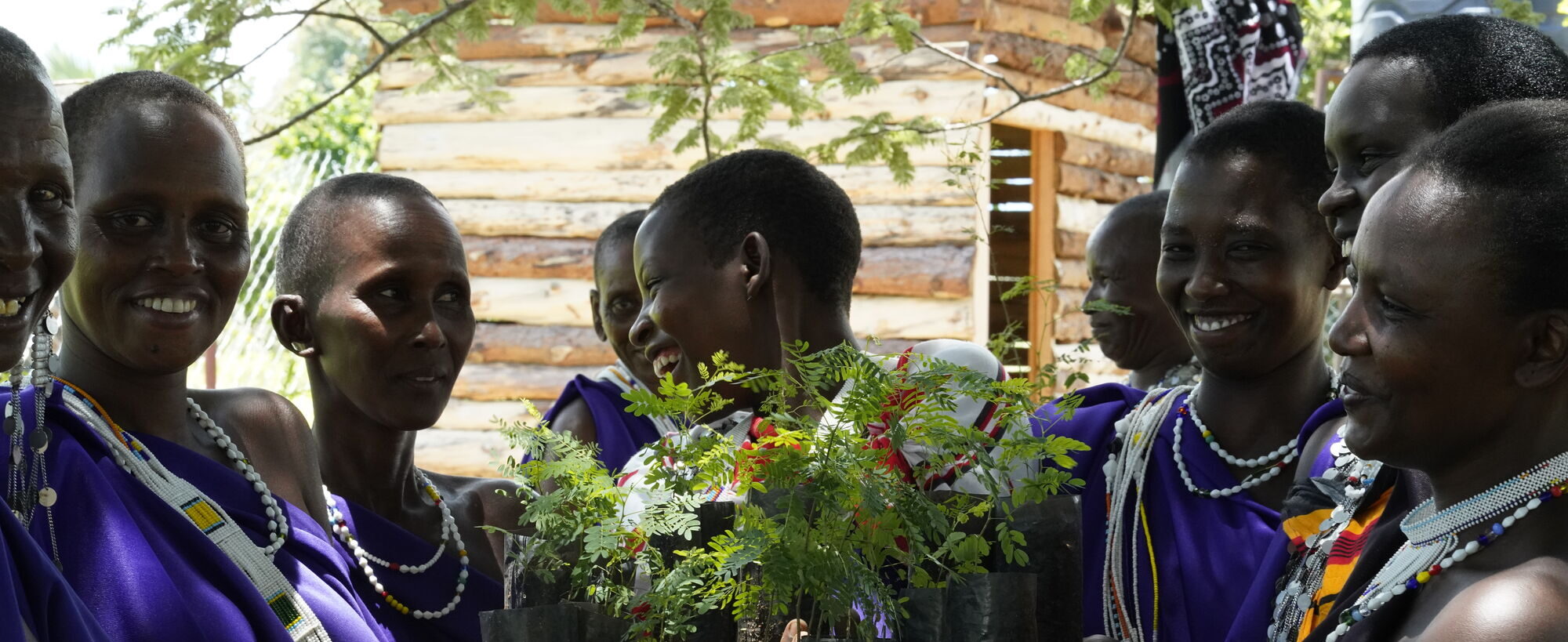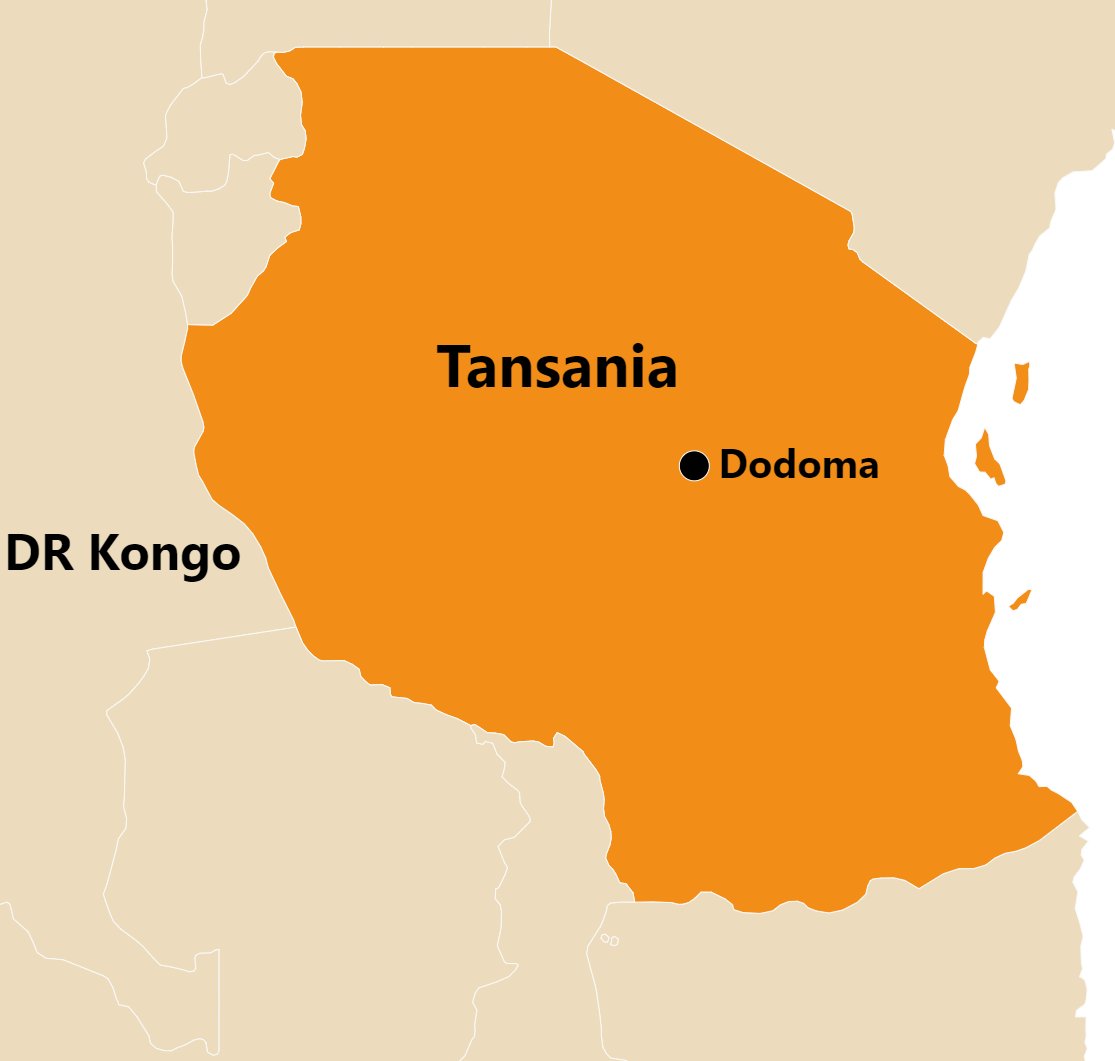
Adrienne Sweetman
Coordinator Tanzania

Project Number: 186.1505
Deforestation, desertification and soil contamination are causing a life-threatening situation for the population of the Mbarali district in Tanzania, which is home to around 300,000 people. 83 percent of the population there work in the agricultural sector; the economy depends on agriculture.
In view of the long-term effects of increased rainfall, the project supports and promotes the planting of trees. The aim of the planting is to improve the microclimate. In addition, soil erosion is to be halted and the groundwater level raised again. By teaching agroforestry skills and putting women in charge of the project, the project promotes an improved livelihood for women, accompanied by health and nutritional benefits.
The project focuses on drought-resistant species that thrive in the hot climate of the Usangu Basin and whose products (leaves or fruit) can be processed and sold. As a result, the women's groups involved also benefit economically.
In the Usangu Basin in Tanzania's Mbarali District, deforestation is contributing to desertification in the semi-arid area and threatening river water supplies. This in turn has far-reaching implications for the natural ecology and hydropower supply of the region. Increasing population pressure in the region and the attractiveness of rice and groundnuts as cash crops have led to intensification of agricultural production by smallholder farmers. The use of agricultural chemicals leads to soil contamination. This pollution of the environment further worsens living conditions. Most of the agriculture practiced depends on rainfall. Drought, exacerbated by deforestation, creates food insecurity and health problems, especially for women and children.
The promotion of ecological agroforestry is important for the Mbarali district and its inhabitants for the following reasons:
This enables us to pursue the following goals:
Last year, two wells were drilled in remote villages and equipped with tanks and solar pumps. Five locations now have a reliable supply of clean drinking water for around 3,500 inhabitants. The water is also used to irrigate tree nurseries in Matebete, Mabadaga and Muungano as well as demonstration fields in Luhanga, Matebete and Mabadaga. At the start of the rainy season in December 2023, work began on planting tree seedlings, which have developed very well as the tree varieties are well adapted to the dry climate. "Forest gardens" were created at all five project locations, in which not only trees but also vegetable plants grow. The existing irrigation also increased the harvest yield on existing vegetable fields and provided an increase in income for the women and their families. There are a total of ten women's groups with 220 members at the five project locations. They receive agroecological training and are closely supported in the implementation of the project.

CHF 52'000
Mission 21
Protestant Mission Basel
PO Box 270
Missionsstrasse 21
4009 Basel, Switzerland
Tel.: +41 (0)61 260 21 20
info@mission-21.org
Donation account Switzerland:
IBAN: CH58 0900 0000 4072 6233 2
Tax exemption number:
CHE-105.706.527
Donation account Germany:
Savings Bank Lörrach-Rheinfelden
Swift BIC: SKLODE66
BLZ: 683 500 48
IBAN: DE39 6835 0048 0001 0323 33
Account No. : 1032333